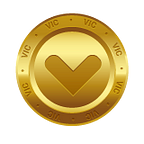What is the role of the dClinic Health Token (DHC) in the dClinic ecosystem?
The dClinic ecosystem is being developed on the principle that the patient should be at the centre of one’s own care, and for enabling this, the dClinic solution aims at recognising and involving all the relevant stakeholders in a patient’s healthcare journey. These stakeholders include doctors, nurses, specialists, care consultants, wellness and vitality services providers, therapists and even family members and friends. dClinic believes that the collaborative efforts of all these parties (caregivers) can help drive positive healthcare outcomes for patients, who ultimately are consumers within the healthcare systems. This is the drive behind Shared Care Planning.
The evidence clearly shows patient-centred care in the form of Shared Care Planning is beneficial for patients, clinicians and the overall healthcare system, so why can’t consumers be rewarded for participating and adhering to their Care Plans? They can and they should be! dClinic has designed a reward-based system, where each stakeholder is incentivised for contributing to a patient’s healthcare outcomes. The rewards in this ecosystem are in the form of dClinic Health Tokens (DHC) which can be used for availing a host of services and benefits within the dClinic ecosystem. Now include the fact that the dClinic Shared Care Planning platform exists on the dClinic Public Healthcare Blockchain (PHB), which has APIs for other healthcare App developers to utilise, and any Health Coins can be created, mined and use as part of the greater healthcare system.
Thus, every time a stakeholder, including the patients themselves, contribute, follow and update their Shared Care Plan, they get rewarded in DHC. If they use other healthcare Apps on the PHB, then they can get additional 3rd party Health Coins too.
To illustrate the effectiveness of the Shared Care Plan, Reward system and PHB, here is just one scenario where various healthcare stakeholders in the dClinic ecosystem will be rewarded with DHC.
Scenario — A consumer suffers from Chronic Disease and a Shared Care Plan (lets call it a ChSCP) is created to manage their situation. In this case initially the patient’s doctor creates the Care Plan. The care plan may include;
- A Medications Management Plan,
- Exercise Plan including a Dietary Management Plan,
- They have a family carer because the patient is elderly, and
- Their local community provides them an interpreter because they speak a language other than English.
This is not an unusual scenario and there Care Plan is shared between the doctor, pharmacy, community caregiver (in this care a specialised interpreter), consented family members, a dietician and food intake counselor.
So how can the rewards system work?
Consumer Reward
If the consumer adheres to their Care Plan, fulfilling tasks set by all the care team members and by completing Patient Reported Outcome Surveys giving their feedback to the care plan, then they will be rewarded in DHC. For example, if the patient takes their medications on time and reports diligently their medications intake, then they are rewarded.
Consumer and Provider Reward
If the consumer forgets to complete any of their tasks, for example, they forget to go for any scheduled daily exercise walks, any member of the consumer’s Care Team can remind the consumer to do so. If the consumer completes that task, then they and the Care Team member will receive DHC. Family members can benefit from such a system. Interpreters who interact with the patient can also benefit since they can assist the patient to understand their commitments through proper translation. dClinic’s Telemedicine App is particularly useful to avoid the tyranny of distance and fulfill a useful follow up tool.
Provider Reward
For every (electronic or other) referral that makes a difference to the patient in terms of their participation and adherence to their care plan, the referrer will receive dClinic Health Coin as a reward. This means the caregivers need to “think outside the box” to engage the patient and be proactive with their recovery journey.
Insurance and Pharmaceutical Companies can issue DHC Rewards
Using Alerts and Notifications for better (alternative) treatments, new programs and patient engagement surveys (Patient Experience Measures), organisations funding healthcare can make a difference to the patient’s journey and the overall healthcare system. If the consumer takes up the alternatives, then they can can rewarded with DHC, sponsored by the respective organisations. Organisations can use these interactions via the PHB to drive better healthcare outcomes.
With the accumulated DHC, consumers and Care Team members can access a wide range of services and benefits in the dClinic ecosystem, and thus save on their healthcare expenses. DHC will be a driving force in the dClinic ecosystem by encouraging all stakeholders to participate in consumers’ healthcare journey and positive healthcare outcomes.
